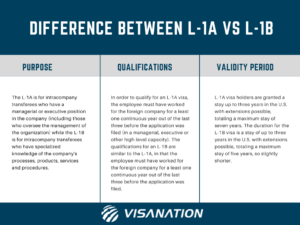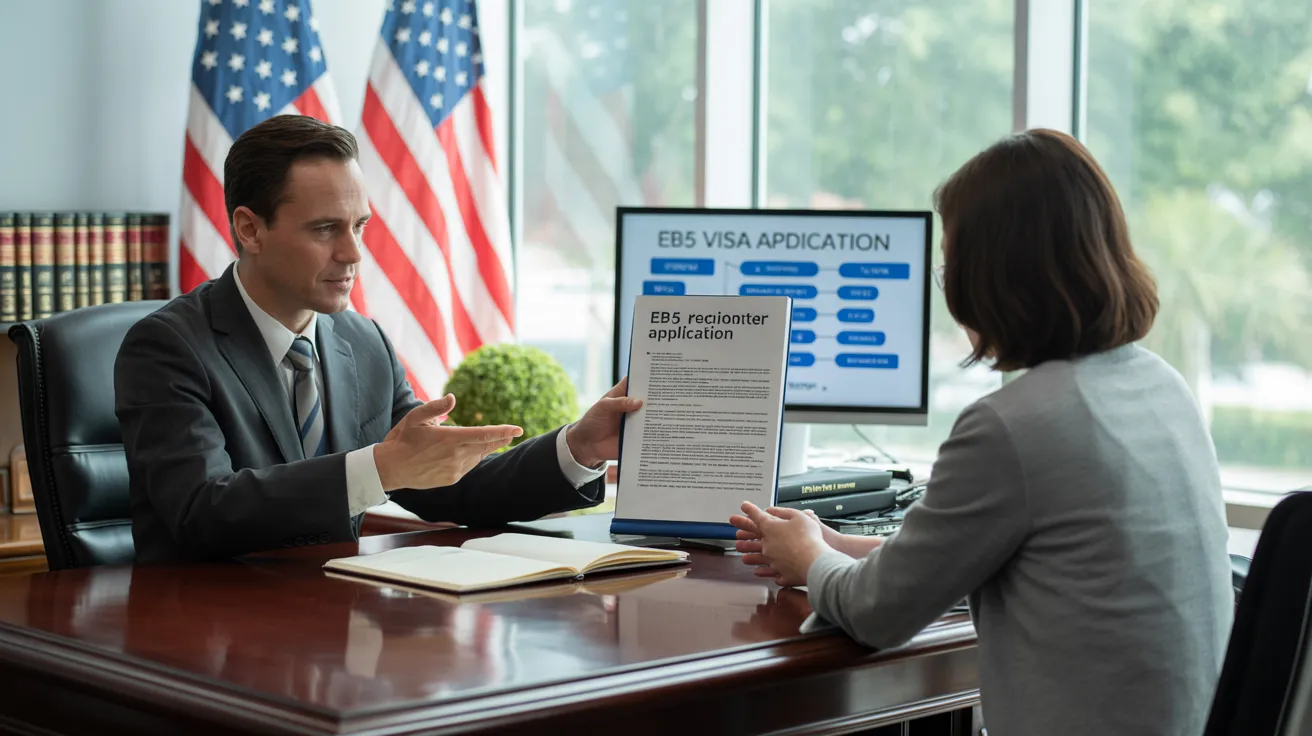Not known Facts About L1 Visa
Table of Contents7 Simple Techniques For L1 Visa4 Easy Facts About L1 Visa ShownThings about L1 VisaL1 Visa Things To Know Before You Get ThisThe 6-Second Trick For L1 VisaThe 6-Second Trick For L1 Visa
Available from ProQuest Dissertations & Theses Global; Social Science Premium Collection. DHS Office of the Inspector General. Obtained 2023-03-26.

United State Department of State. Recovered 22 August 2016. "Employees paid $1.21 an hour to install Fremont tech company's computers". The Mercury News. 2014-10-22. Gotten 2023-02-08. Costa, Daniel (November 11, 2014). "Obscure short-lived visas for foreign technology workers dispirit earnings". The Hillside. Tamen, Joan Fleischer (August 10, 2013). "Visa Holders Replace Employees".
The Single Strategy To Use For L1 Visa
In order to be qualified for the L-1 visa, the international firm abroad where the Recipient was used and the United state business have to have a certifying partnership at the time of the transfer. The different types of certifying partnerships are: 1.
Firm An owns 100% of the shares of Business B.Company A is the Parent and Business B is a subsidiary. There is a qualifying partnership between the two firms and Firm B must be able to sponsor the Recipient.
Company A possesses 40% of Business B. The remaining 60% is had and managed by Firm C, which has no connection to Company A.Since Firm A and B do not have a parent-subsidiary partnership, Business A can not sponsor the Beneficiary for L-1.
Example 3: Business A is included in the U.S. and intends to petition the Beneficiary. Firm B is integrated in Indonesia and employs the Recipient. Firm A possesses 40% of Business B. The staying 60% is had by Company C, which has no relationship to Firm A. However, Firm A, by formal agreement, controls and full takes care of Firm B.Since Company A possesses less than 50% of Company B yet handles and controls the business, there is a certifying parent-subsidiary connection and Firm A can sponsor the Beneficiary for L-1.
9 Easy Facts About L1 Visa Explained
Company B is included in the United state
Not known Details About L1 Visa

The L-1 visa is an employment-based visa group developed by Congress in 1970, allowing international business to transfer their managers, get started executives, or crucial workers to their United state procedures. It is frequently referred to as the intracompany transferee visa.

In addition, the beneficiary has to have worked in a supervisory, exec, or specialized worker position for one year within the three years preceding the L-1A application in the international company. For new workplace applications, L1 Visa requirements international employment needs to have remained in a supervisory or executive ability if the recipient is involving the USA to work as a manager or exec.
Some Ideas on L1 Visa You Should Know

If approved for an U.S. company functional for even more than one year, the preliminary L-1B visa is for as much as three years and can be extended for an additional two years (L1 Visa). Alternatively, if the united state business is newly developed or has been operational for less than one year, the initial L-1B visa is issued for one year, with expansions readily available in two-year increments
The L-1 visa is an employment-based visa category developed by Congress in 1970, permitting multinational companies to transfer their managers, execs, or key workers to their U.S. operations. It is frequently described as the intracompany transferee visa. There are two main sorts of L-1 visas: L-1A L1 Visa process and L-1B. These kinds are appropriate for workers hired in different positions within a company.
Some Known Facts About L1 Visa.
Furthermore, the recipient must have operated in a managerial, executive, or specialized worker placement for one year within the 3 years preceding the L-1A application in the international company. For brand-new workplace applications, foreign employment must have remained in a managerial or executive capacity if the beneficiary is pertaining to the United States to work as a supervisor or exec.
for up to seven years to oversee the procedures of the U.S. affiliate as an executive or manager. If provided for a united state business that has actually been functional for even more than one year, the L-1A visa is originally approved for approximately 3 years and can be expanded in two-year increments.
If approved for an U.S. business operational for more than one year, the first L-1B visa is for approximately three years and can be extended for an additional 2 years. Alternatively, if the united state company is recently established or has been operational for less than one year, the initial L-1B visa is issued for one year, with extensions available in two-year increments.
Comments on “L1 Visa Explained”